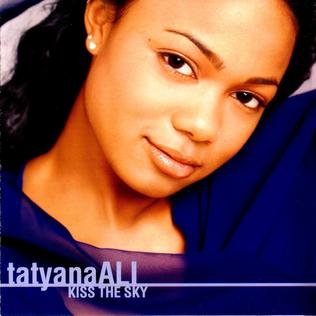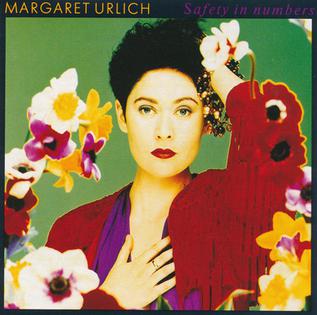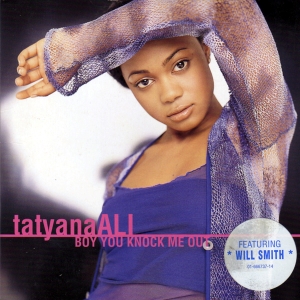Related Research Articles

"Blue Bayou" is a song written by Roy Orbison and Joe Melson. It was originally sung and recorded by Orbison, who had an international hit with his version in 1963. It later became Linda Ronstadt's signature song, with which she scored a Top 5 hit with her cover in 1977. The song has since been recorded by many others.

"Kung Fu Fighting" is a disco song by Jamaican vocalist Carl Douglas, written by Douglas and produced by British-Indian musician Biddu. It was released as a single in 1974 on the cusp of a chopsocky film craze and rose to the top of the British, Australian, Canadian, and American charts, in addition to reaching the top of the Soul Singles chart. It received a Gold certification from the RIAA in 1974 and popularized disco music. It eventually went on to sell eleven million records worldwide, making it one of the best-selling singles of all time. The song uses the quintessential Oriental riff, a short musical phrase that is used to signify Chinese culture.

Kiss the Sky is the only studio album by American singer and actress Tatyana Ali. The album was released on August 25, 1998, peaking at number 106 on the Billboard 200 and number 47 on Billboard's Top R&B/Hip-Hop Albums chart. The album produced the top ten Billboard Hot 100 hit "Daydreamin'", as well as the UK hit single "Boy You Knock Me Out", and the ballad "Everytime". The album was certified gold in early 1999, however, it did not sell as well as expected, and as such, Ali was dropped from the label in late 1999. The album was made with the help of her Fresh Prince co-star and rapper Will Smith.

The English pop rock band Tears for Fears have released six studio albums, along with numerous singles, compilations and videos. Formed in 1981 by Roland Orzabal and Curt Smith, the duo signed to Phonogram Records in the UK and released their first single the same year. It was not until Tears for Fears' third single, "Mad World" (1982), that they scored their first hit, and their platinum-selling debut album The Hurting (1983) was a UK number one.

"Only One Woman" is a song and the first single by English duo The Marbles, written by Barry, Robin and Maurice Gibb of the Bee Gees. It later also appeared on their self-titled album The Marbles.

"I've Been Waiting for You" is a song recorded in 1974 by Swedish pop group ABBA, released first as the B-side to the single "So Long". It was included on their album ABBA, released April 1975.
"Release Me", is a popular song written by Eddie "Piano" Miller and Robert Yount in 1949. Four years later it was recorded by Jimmy Heap & the Melody Masters, and with even better success by Patti Page (1954), Ray Price (1954), and Kitty Wells (1954). Jivin' Gene [Bourgeois] & the Jokers recorded the tune in 1960, and that version served as an inspiration for Little Esther Phillips, who reached number one on the R&B chart and number eight on the pop chart with her big-selling cover. The Everly Brothers followed in 1963, along with Lucille Starr as "The French Song" including a translation in French (1964), Jerry Wallace (1966), Dean Martin (1967), Engelbert Humperdinck (1967) who was number one on the UK Singles Chart and many others in the years after.

Safety in Numbers is the debut solo album by Margaret Urlich, released in 1989. The first single, "Escaping", was number one for three consecutive weeks in New Zealand and peaked at number 17 in Australia. Urlich won an ARIA Award in 1991 for Best Breakthrough Artist - Album for Safety in Numbers. The album achieved platinum status in New Zealand and triple platinum status in Australia. Safety in Numbers has sold over 265,000 copies.

"How Do You Do" released in 1971 was an international hit single for Dutch duo Mouth & MacNeal. It was #1 in the Netherlands, Belgium, Denmark, Switzerland, and New Zealand. It also spent 19 weeks in the Billboard Hot 100 a year later, and a cover version by Scots-German duo Die Windows reached #1 in Germany. The single earned Mouth & MacNeal, and its composers Hans van Hemert and Harry van Hoof, the 1972 Buma Export Award for the most records sold abroad by a Dutch musical act in that year.
The Official New Zealand Music Chart is the weekly New Zealand top 40 singles and albums charts, issued weekly by Recorded Music NZ. The Music Chart also includes the top-20 New Zealand artist singles and albums and top 10 compilation albums. All charts are compiled from data of both physical and digital sales from music retailers in New Zealand.

Together with Cliff Richard is a Christmas album by Cliff Richard, released in November 1991. The album features Richard singing popular traditional Christmas songs, his Christmas hits from recent years and two original songs.

The Hit List, released with the subtitle The Best of 35 Years, is a compilation album by English singer Cliff Richard. Released in October 1994, the album reached number 3 in the UK Albums Chart and was certified platinum in the UK. The album celebrates Richard's 35th anniversary in the music industry and compiled all of Richard's top 5 UK hit singles, which coincidentally totalled 35 at the time. Two bonus tracks were also chosen by Richard for the album – "Miss You Nights", at the request of fans for a re-release, and "Green Light" a favourite of Richard's.
Dave Mills was an English singer.

"Boy You Knock Me Out" is a song by American actress and singer Tatyana Ali from her only studio album, Kiss the Sky (1998). Written by Kelly Price, StoneBridge, and Nick Nice, the track samples "Summer Madness" by Kool & the Gang and "What You Won't Do for Love" by Bobby Caldwell. Released via MJJ Music and Epic Records on February 1, 1999, the song reached number three on the UK Singles Chart and entered the top 40 of the charts in France, Iceland, Ireland, and New Zealand. The single version of the song, known as the "Big Willie Style" edit, features Will Smith performing a rap.
References
- Scapolo, Dean (2007). The Complete New Zealand Music Charts: 1966–2006. Wellington: Dean Scapolo and Maurienne House. p. 13. ISBN 978-1877443-00-8.
- Number One Singles Of 1963